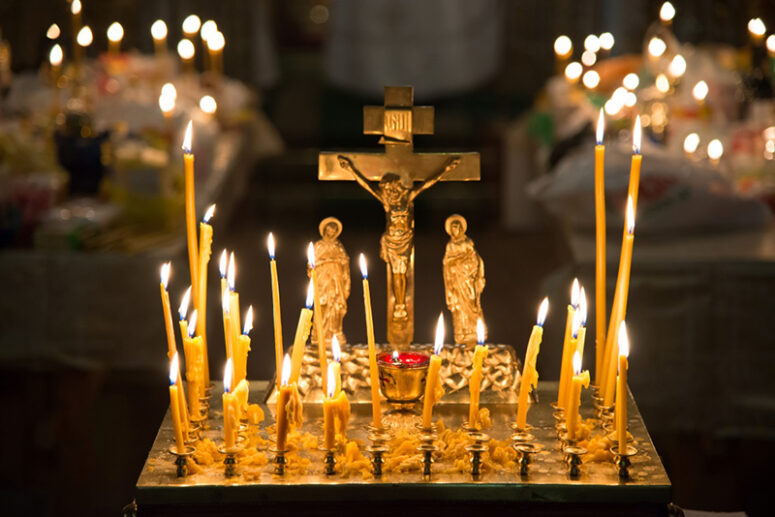
Question: Where do we find any evidence that praying for the dead is a biblical? From what I have read it appears that the Bible almost says the opposite of this in Ezekiel Chapter 18. Sure, Ezekiel was talking to Israel prior to the New Covenant that we have in Christ, but it says at the start of the chapter that this came from the word of the LORD and it seems consistent with Romans 2:3-9.
Answer:
What does the Bible Say?
The point of Ezekiel 18 is that a son is neither saved nor condemned because of the righteousness or the sins of his father, and neither is a father saved or condemned because of his son. Also, past righteous will not save a man who falls into sin, nor will past sin condemn a man who turns from his sin. The passage is not about prayers for the dead.
The point of Romans 2:3-9 is that everyone will be judged according to his works, This has nothing to do with prayers for the dead either, unless you assume that we believe that by praying for the dead we could pray an impenitent sinner into heaven, but we do not believe that.
There are, however, passages of Scripture that do address this question. 2nd Maccabees is not in most Protestant Bibles, but it was included in the 1611 King James Bible, and has been considered to be part of Scripture by the Church since the time of the Apostles (see Canon 85 of the Holy Apostles) — and in 2nd Maccabees 12:38-45 we find a very clear example of prayer for the dead.
In the Wisdom of Sirach (which is also listed among Scripture by the Canon 85 of the Apostles), it says: “Give graciously to all the living; do not withhold kindness even from the dead” (Sirach 7:33).
And in 2 Timothy 1:16-18, St. Paul is praying for Onesiphorus, who obviously is no longer among the living:
“The Lord grant mercy to the household of Onesiphorus, for he often refreshed me, and was not ashamed of my chain; but when he arrived in Rome, he sought me out very zealously and found me. The Lord grant to him that he may find mercy from the Lord in that Day—and you know very well how many ways he ministered to me at Ephesus.”
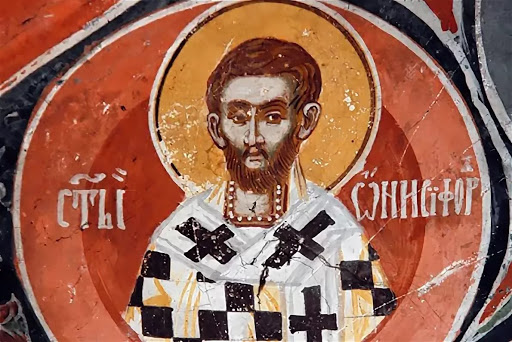
Jewish Tradition
The text from Second Maccabees that has already been cited is clear evidence that this was the Jewish custom well before the time of Christ, but is also a fact that the Jews continue to pray for the dead. So if prayers for the dead were some pagan corruption that crept into the Church, one has to wonder how it also crept into Judaism… especially when this would have to have happened before the the time of Christ.
Christian Tradition
When I first began to seriously consider becoming Orthodox, prayers for the dead were on my list of about 5 issues that had to be resolved, but it was also one of the first issues to be scratched off that list, because the evidence that the early Church prayed for the dead is far too ubiquitous to allow one to doubt it. You find it in the earliest texts of the Liturgy. You find it passing comments made by the earliest writers of the Church. You also find them in the catacombs. For example, we have the Epitaph of Abercius, Bishop of Hieropolis, who reposed in 167 A.D., in which he asks for those who read the epitaph to pray for him. When St. Augustine’s pious mother was departing this life, her last request was: “Lay this body anywhere, let not the care for it trouble you at all. This only I ask, that you will remember me at the Lord’s altar, wherever you be” (Confessions 9:27). And quotation upon quotation could be multiplied along these lines.
Prior to the Protestant Reformation, there weren’t any Christians, anywhere, who did not have the custom of praying for the dead.
Conclusion
I remember hearing the story of an Anglican priest who had adamantly opposed prayers for the dead any time the issue was raised, and then after his wife’s death he ceased to speak up on the matter, and was asked about it. He said that he had prayed for his wife every day, since he had met her, and could not bring himself to stop after her death. Prayer for the dead is a way the living show their love for dead. We also believe that prayers the dead are of some benefit to them, but exactly how these prayers benefit them is not something that the Church has precisely defined. If someone dies in a state of repentance, but without having had a chance to bring forth all the fruits of repentance, we believe that they are not ready to enter immediately into the presence of God, but that at some point, through the prayers of the Church, they will be. If someone dies in a state of impenitence, while our prayers are of some benefit to them, those prayers cannot make them worthy of the Kingdom of Heaven. But in either case, by praying for the dead, we strengthen our own faith, and come to better entrust our loved ones to God’s mercy.
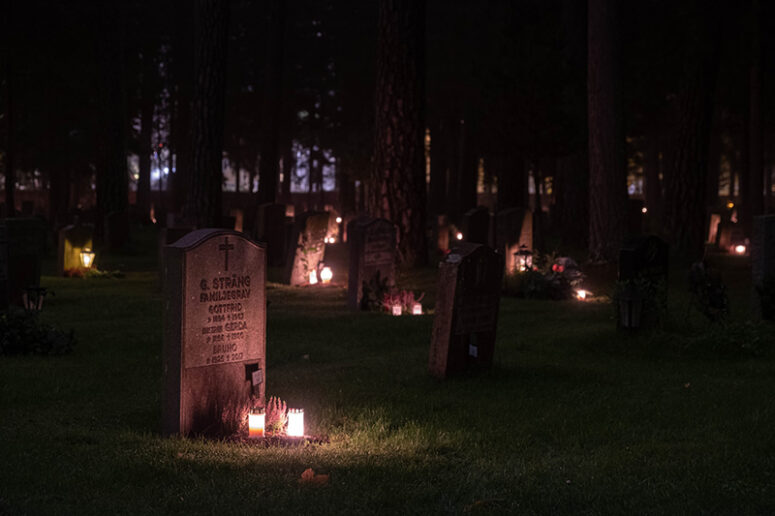
Update:
For those who want further proof that the Church does not believe that those who die in a state of unrepentance can be prayed out of hell, consider the following:
St. John of Damascus wrote that those who have departed, unrepentant, and with “an evil life” cannot change their destination from hell to heaven by the prayers of anyone (“On Those Who Have Fallen Asleep in Faith, 21 PG 95,268BC, referenced in “The Mystery of Death,” by Nikolaos P. Vassiliadis, p. 432. St. John Chrysostom likewise speaks of those who are where it is not possible to receive cleansing, and who are outside of the Kingdom of God, but who may receive some consolation by our prayers (Homily “On Not Mourning Bitterly Over the Dead”, PG 60,888-889, referenced in “The Mystery of Death, p. 432-434),
And St. Mark of Ephesus states in his “First Homily, Refuting the Latin Chapters Concerning Purgatorial Fire”:
“But we have received that even the souls which are held in hell are already given over to eternal torments, whether in actual fact and experience or in hopeless expectation of such, as can be aided and given a certain small help, although not in the sense of completely loosing them from torment or giving hope for a final deliverance. And this is shown from the words of the great Macarius the Egyptian ascetic who, finding a skull in the desert, was instructed by it concerning this by the action of Diving Power. And Basil the Great, in the prayers read at Pentecost, writes literally the following: “Who also, on this all-perfect and saving feast, art graciously pleased to accept propitiatory prayers for those who are imprisoned in hades, granting us a great hope of improvement for those who are imprisoned from the defilements which have imprisoned them, and that Thou wilt send down Thy consolation” (Third Kneeling Prayer at Vespers). But if souls have departed this life in faith and love, while nevertheless carrying away with themselves certain faults, whether small ones over which they have not repented at all, or great ones for which — even though they have repented over them — they did not undertake to show fruits of repentance: such souls, we believe, must be cleansed from this kind of sins, but not by means of some purgatorial fire or a definite punishment in some place (for this, as we have aid, has not at all been handed down to us). But some must be cleansed in the very departure from the body, thanks only to fear, as St. Gregory the Dialogist literally shows; while others must be cleansed after the departure from the body, either while remaining in the same earthly place, before they come to worship God and are honored with the lot of the blessed, or — if their sins were more serious and bind them for a longer duration — they are kept in hades, but not in order to remain forever in fire and torment, but as it were in prison and confinement under guard. All such ones, we affirm, are helped by the prayers and Liturgies performed for them, with the cooperation of the Divine Goodness and Love for mankind. This Divine cooperation immediately disdains and remits some sins, those committed out of human weakness, as Dionysius the Great (the Areopagite) says in the “Reflections of the Mystery of those Reposed in Faith” (in The Ecclesiastical Hierarchy, VII, 7); while other sins, after a certain time, by righteous judgments it either likewise releases and forgives — and that completely — or lightens the responsibility for them until that final Judgment” (see “The Soul After Death”, Appendix I, p. 208f).
Here also is a quote from St. Symeon of Thessalonika’s Liturgical commentary, about commemorations at the Proskomedia: “And there is no place here [in commemorations at the proskomedia] for unbelievers, let alone for the heterodox. “For what communion does light have with darkness?” since, scripture says, the angels will separate out the evil from the midst of the just. Therefore it is also not at all right for a priest to make a commemoration of him; neither for a heterodox, or make a commemoration of him neither for those openly sinning and unrepentant. For the offering is to their condemnation, just as it is also for the unrepentant who receive communion of the awe-inspiring mysteries, as the divine Paul says” (St. Symeon of Thessonika, The Liturgical Commentaries, edited and translated by Steven Hawkes-Teeples, (Toronto: Pontifical Institute of Mediaeval Studies, 2001), p. 232f).
Source: https://fatherjohn.blogspot.com/2015/04/stump-priest-prayers-for-dead-in-bible.html

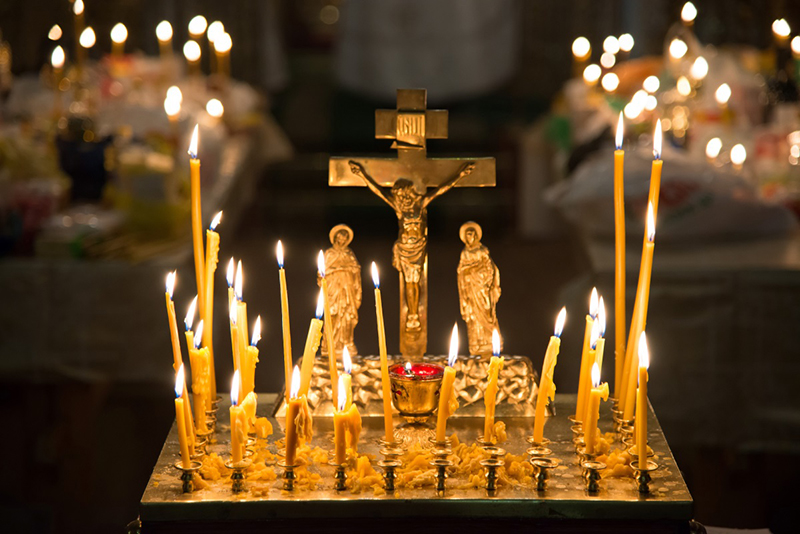

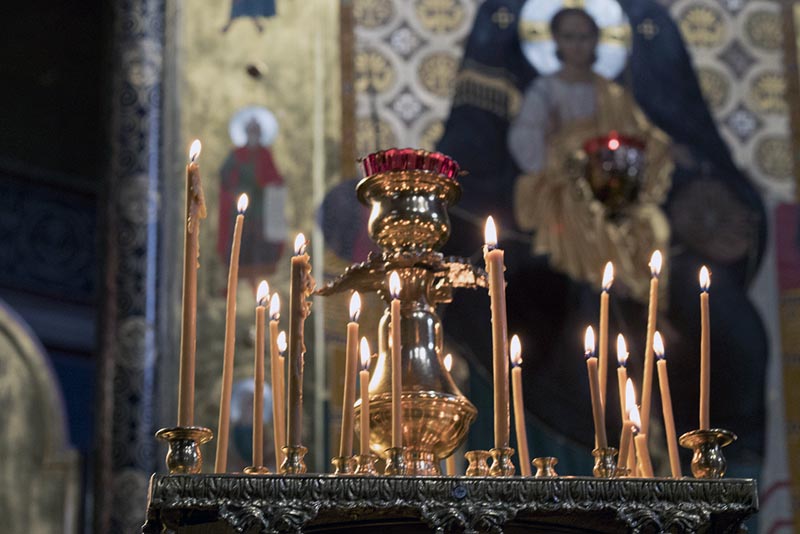
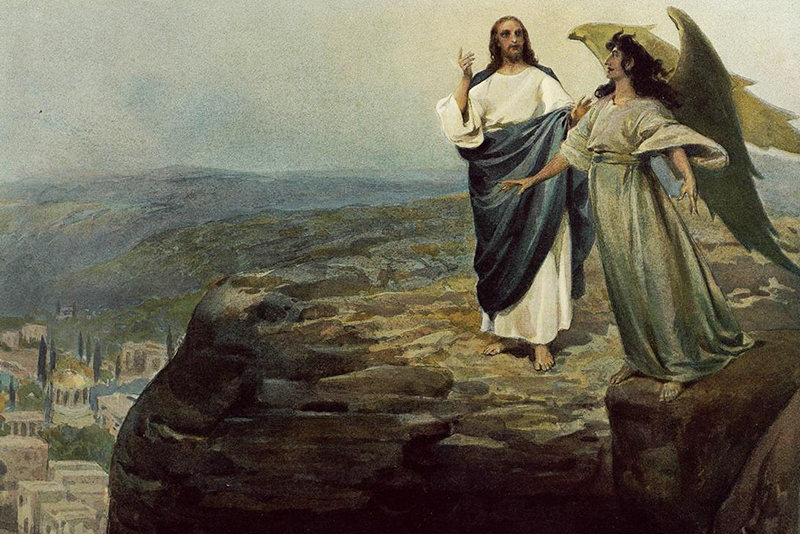
Thanks for exploring this topic in depth. I would like to stop referring to the dead. Jesus corrected that notion saying God is the god of the living. Jesus met with Moses and Elijah. I am open to more communion with the saints in heaven than I have been taught. Not just prayer but the communion of the saints.